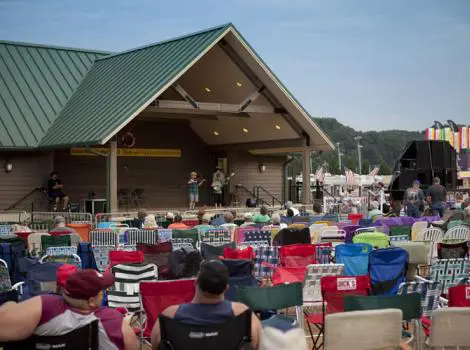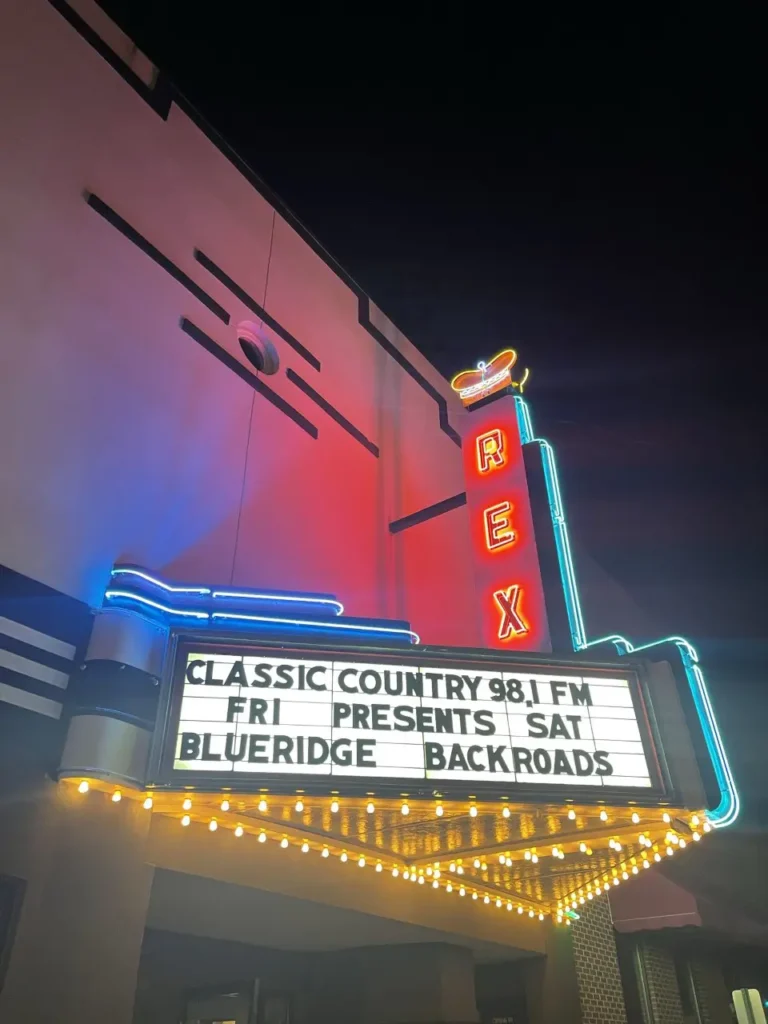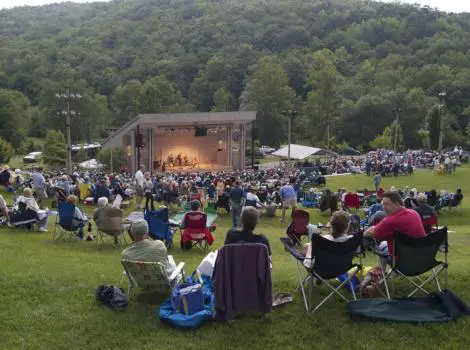The traditional string music of the mountains has deep roots in Tazewell County. County historians describe fiddles and banjos playing for dances as much as 200 years ago (one account speaks of a dance which continued “until the musician was heartily tired of his situation”). Many musicians whom people still remember were never recorded. One who was, was fiddler John Hilt of Tannersville, who was a mentor to the legendary Frank George of Bluefield. Another was Herb Bowman of Baptist Valley, who played fiddle for years with Fred O’Quinn and the Bluegrass Travelers; they played (among many other places) at the Festival of American Folklife in Washington, D.C. Today the tradition carries on at the annual Fiddlers Convention each July at the Crab Orchard Museum.
The old fiddle and banjo sound of traditional mountain music laid the foundation for bluegrass, which folklorist Alan Lomax called “folk music in overdrive.” Tazewell County has known many bluegrass musicians over the years. Today the bluegrass tradition carries on with musicians old and young, including Tommy Taylor, Quay White and friends (the Golden Age Grass) who play each Friday evening at the Coal Bucket Deli in North Tazewell.
Blues, America’s great contribution to the world’s music, is sometimes considered the music of African Americans. The real story is more complicated. Before the blues, African Americans in Tazewell County played old-time music. One account of the Black community in the 19th century says “some enjoyed it with fiddle and banjo, some praised God.” The first record of the blues in Tazewell points to a white man, William Evert Myer, a merchant and songwriter in Richlands who was operated a record label from 1928-1930. He wrote “Old Rub Alcohol Blues” which Dock Boggs recorded in 1928, and “Richland Woman Blues” which made its way to the repertoire of the legendary Mississippi John Hurt. We can only wonder what some of the older players sounded like, for example the Holley Brothers, African American/Cherokee performers who were never recorded. One we do know is fingerpicking guitarist Dave Dickerson, who performed traditional and original pieces like “The War Is Over,” recorded in Blacksburg in 1965. Piano Bob Harmon brought several traditions together in his rockabilly “Kentucky Home Boogie.”
Research by Rich Kirby



